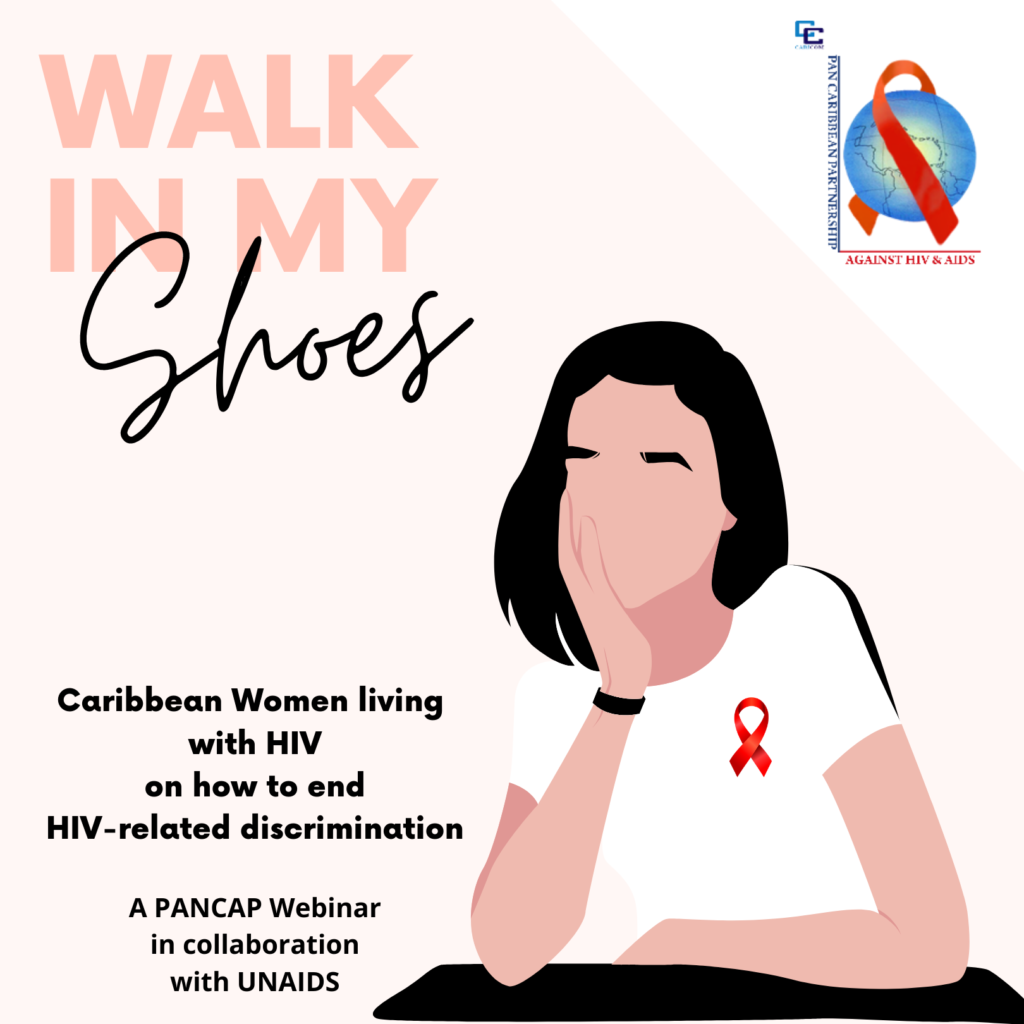Walk In My Shoes — Caribbean Women living with HIV on how to end HIV-related discrimination

Virtual (Via Go-to-Webinar)
pancap@caricom.org
Event Summary
Ahead of Zero Discrimination Day, PANCAP and the Joint United Nations Programme on HIV/AIDS (UNAIDS) have collaborated on a special webinar which will highlight the experiences of three Caribbean women living with HIV.
Every year, 1 March is observed as Zero Discrimination Day. The theme chosen for this year is zero discrimination against women and girls.
Zero Discrimination Day is universal in its reach and does not confine itself to HIV or health-related themes, but aims to highlight issues related to discrimination more broadly.
Discrimination and gender inequality remain a huge barrier for women and girls in all aspects of their lives and have a significant impact on the AIDS response. Focusing on discrimination faced by women and girls will be an opportunity for us to raise visibility on the challenges faced by them and demand its end. The day will also be an opportunity to highlight the challenges faced by women in all their diversity, including women living with HIV, transgender women, female sex workers, women who inject drugs, prisoners and other marginalized women. The day will also provide an opportunity to generate political will and support for action to address the legal, social and economic barriers against equal access to health, education and development for women and girls.
Details
Topic – Walk In My Shoes — Caribbean Women living with HIV on how to end HIV-related discrimination
Presenters – Three Caribbean women living with HIV
Date: Friday 28 February 2020 (ahead of Zero Discrimination Day on March 1)
Time: 1:30 PM to 2:30 PM GYT
REGISTER NOW!
Event Description
An estimated 160,000 women aged 15+ were living with HIV in the Caribbean in 2018. The prevailing narrative about these women is that they are more likely than men to be diagnosed early, to access services, to remain adherent to treatment and to achieve viral suppression. Women are central to the Caribbean’s most significant wins in the effort to end AIDS—progress toward the elimination of mother-to-child transmission.
But what are the lived realities of these women? How do they fare at school and in the workplace, in their families and in communities? Do they feel safe and respected? Are they able to live lives free from prejudice and inequity? And what interventions give them the best chance of living their best lives? We will find out by engaging three women living with HIV from three Caribbean countries.


